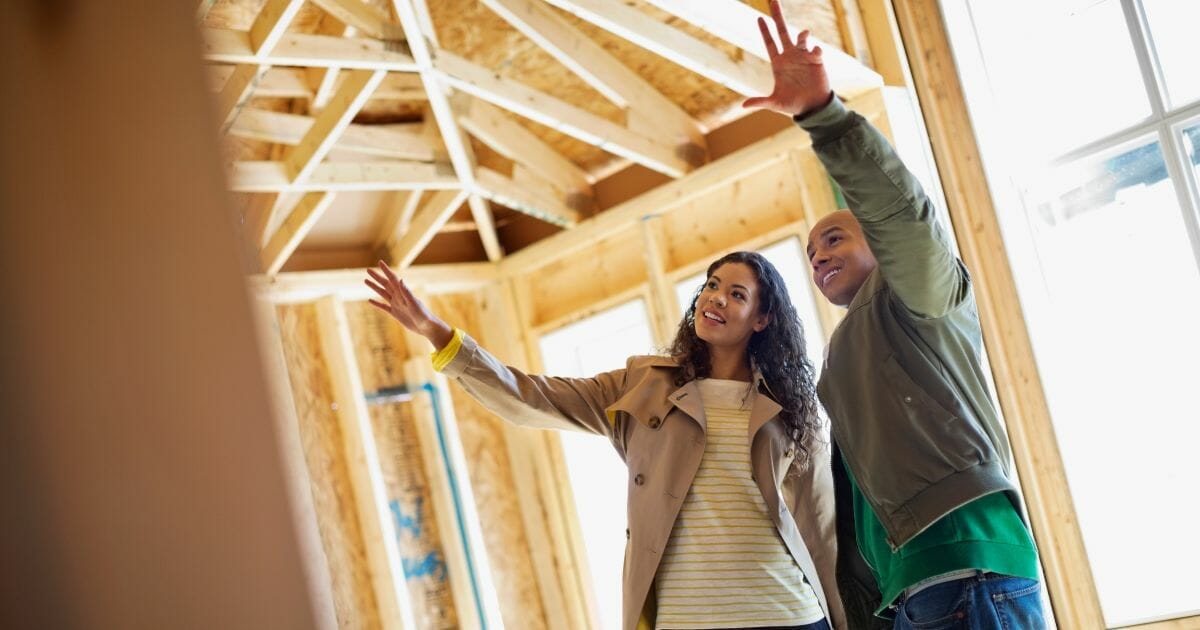New Construction vs Older Homes: Some Pros & Cons
The housing market over the past few years has garnered a lot of attention – from stories in the media to chats at work or parties and around the neighborhood, to real estate agents offering to sell your home or announcing the recent sale prices of houses comparable to yours. The conversations have ebbed and flowed over time but the basic themes probably sound familiar: There are not enough homes on the market in our price range. . .We’ve been searching for months and can’t find the right fit. . .The bidding wars are brutal. . .We’re missing out on homes that sell before we even have a chance to see them. . .The homes we look at need a lot of work and are already priced too high.
Even with recent increases in mortgage rates, it doesn’t seem that enough inventory is available for those looking to purchase a home right now. But there is a way to avoid the competitive home market altogether if you consider new construction. Whether you’ve been in the market for a while or are just beginning to look at your options, there are some key differences between buying older homes and new construction homes.

If you’re seeking a style of home that is no longer being newly built – perhaps a 20th-century Colonial, Tudor, or Victorian-style home – you’ll probably have a difficult time finding a builder currently replicating these styles today.
On the other hand, you and the builder might be able to discuss the features of older homes you like best and find out if anything can be incorporated into something new.
Homes built 30 years ago or earlier are more likely to be situated on land with mature landscaping. If you’re looking for a house with a generation or two of garden history, you’ll be more likely to find it in an existing property.
However, a fresh new lawn and space to plant the flowers and trees of your choosing might be a gardener’s dream.
Some buyers might prefer a community where the neighbors grew up with each other’s families, in an established neighborhood. While it’s true the odds are better of finding an older home on the market in some popular neighborhoods, don’t discount new construction homes, including some by LaMontagne Builders throughout Southern New Hampshire, which are being built on individual plots of land within existing neighborhoods.
Be that as it may, even older neighborhoods used to be new. New construction allows you and your neighbors to set your own traditions and culture. In 30 years, yours will be the sought-after, established neighborhood buyers are looking to move into.
Maintenance costs can be a major barrier to enjoying an older home. Failing furnace and electrical systems, leaky plumbing and roofs, or other issues can lead to staggering repair and replacement costs over the years. Could that be the reason why the current owners are looking to sell in the first place?
Similarly, unless a previous owner recently upgraded their appliances, heating and air conditioning, or upgraded their windows and insulation for energy efficiency, you may end up incurring higher utility costs over the life of your home, not to mention the inconvenience of appliances that are not up to modern standards.
Keep in mind that many homeowners often don’t have any way of knowing what’s happening behind their walls, above their ceilings, or below their floors until they run into a need for repair or renovation. There may be expensive or even unsafe scenarios lurking behind the scenes.
New home construction guarantees brand new, energy efficient appliances, warranties, and the highest standards related to current building codes and safety.
You’ll likely find that older homes have outdated floor plans. Those might include smaller bedrooms and closets, closed-off living areas, kitchens impractical for entertaining, and less flexibility for multi-purpose spaces, such as being able to create a home office.
On the other hand, new construction reflects our modern lifestyles and needs, which includes more storage and fewer walls. Working closely with a builder and designer, you’ll be able to choose the floor plan that works best for your family and you won’t be restricted to using the available square footage only in the most conventional ways.
The topics we’ve covered here are just a few you should consider in the process of deciding whether to purchase a new construction or previously owned home. In the end, the decision is yours. If you think new construction will suit you, we’d love to hear from you and talk about where to start! Check out the communities and move-in ready homes we offer and schedule a tour to see them for yourself.